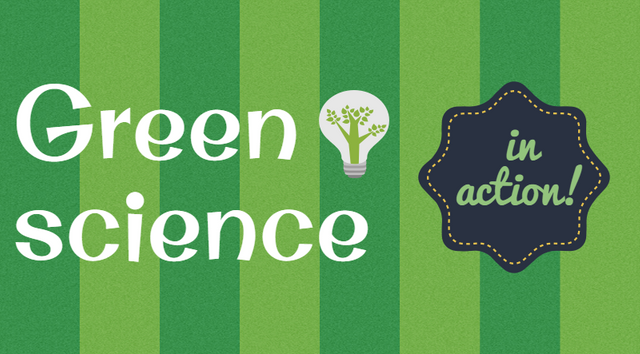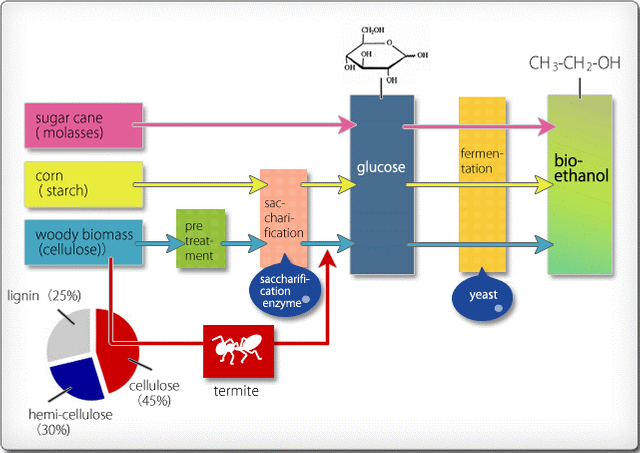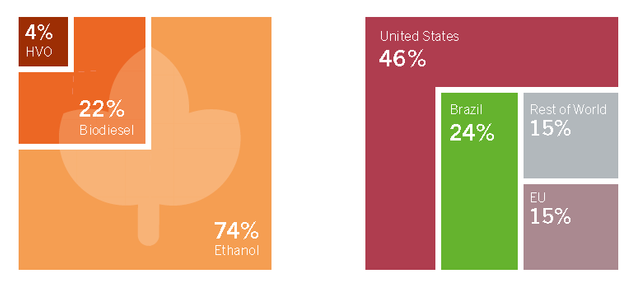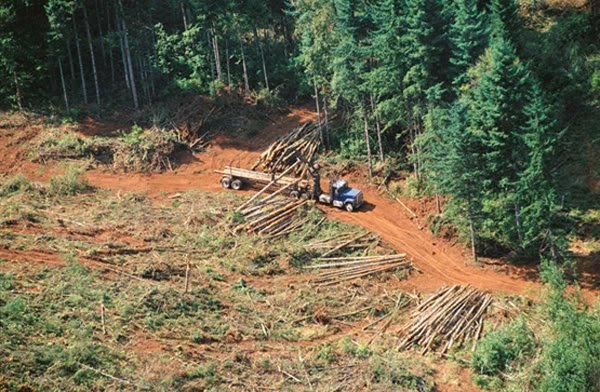Bioethanol: actually not so "bio" [Green science in action 1]

Green Science in Action posts aim to expose what is happening in the world regarding to the development of the industry and its impact on society from the environmental point of view, comtemplating what alternatives are being considered so that they don't only achieve to have a solid economic production, but also and above all to be committed to the protection and conservation of the environment.
Bioethanol: actually not so "bio"
Ethanol is an alcohol widely used in medical and beverage industry, is also employed as a solvent for lacquers, varnishes, perfumes and flavorings and as a chemical reactions medium. In recent years its application has spread widely considered to be a sustainable alternative in the field of fuels, which production source raw materials are corn, wood and sugar cane in general. However, there are certain considerations that have not been taken into account when it is called as a "biofuel" that have to do with the health of the environment and the people working in this area, among others considerations.
How is the "bioethanol" produced?
In the case of sugar cane it is washed to remove impurities (dust and sand) and then cutted and milled to produce sugar juice. This juice is chemically treated and purified in order to allow yeasts to take it as "food" and carry out alcoholic fermentation. Finally, fermented wine is obtained and from its distillation results ethanol, which passes through other purification processes depending on its end use (if it is needed to use as a pure fuel it must be dehydrated). In the following figure its shown that the process for corn or wood differs only in that are needed enzymes that degrade polymers (starch and cellulose) into simple sugars such as glucose, so they can be used by the yeast.

Ethanol is the most produced biofuel in the world. If the production process of this fuel is analyzed taking into account the impact on the environment, in plain sight can be concluded that it is a clean and renewable energy source, by using biomass as feedstock energy, its production is cheaper than oil extraction and that farmers are benefited. However, there are specific cases that refute these claims, such as Brazil.
Brazil is one of the main countries affected by the problem of mass production of ethanol. Although the first attempt to use ethanol as a fuel in Brazil was in the 20's, production wasn't massified due to the lack of support of the state and the economic interests that existed after oil. the result of this was an environmental crisis and Brazil reacted using its extensive production of sugar cane as a source of ethanol, which is widely used since 1975. Since then, Brazil has been one of the world's largest producers of ethanol as you can see in the chart below. [1]

What is the problem of the production of ethanol as fuel?
There are several points to consider to determine how beneficial is this alternative as an energy source.
- Transportation
Ethanol can not be transported in pipelines, such as oil, because it is very susceptible to degradation in this process. This would only leave trucks as medium to ethanol transportation, which emits CO2 and pollute the environment.

- Deforestation
The wide demand of ethanol involves the cultivation of biomass (sugar cane in Brazil case) in excess. This leads to the destruction of many hectares of land to destine monoculture, which has devastating consequences for the environment. For example, in Brazil 80% of greenhouse gases don't come from cars but from deforestation, so even when using ethanol as fuel it is avoided the emission of a certain quantity of carbon dioxide, it is generated the same amount or more of greenhouse gases as consequence of deforestation.

Water consumption exacerbated
To produce 1 liter of ethanol are needed 4 liters of water. [1]Food safety
The question of deciding between using land to grow food or to feedstock production for fuels fabrication faze food security on the production site.

- Utilities
Unfortunately, the benefits and utilities from ethanol production are only harnessed by monopolies. In general, workers of these companies have ridiculously low incomes, deplorable health, full days work and have no humanly acceptable quality of life. [1]
Conclusion
There are other energy sources that are renewable and which consequences are not as corrosive as ethanol. It is necessary to think of other technologies that allow the use of inexhaustible energy sources such as solar and wind, for example. Always, when determining the usefulness of a process, it is crucial to observe what social, economic and environmental impacts has this process to make conscious decisions that allow the development of technologies useful to the quality of human life, a task that apparently hasn't being understood. However, the hope of increasing awareness of the importance of preserving the environment should never be missed.
We should always be trying to identify newer better sources of energy supply!
However, there are certain considerations that have not been taken into account when it is called as a "biofuel" that have to do with the health of the environment and the people working in this area, among others considerations.
That would be incorrect.
Not only were the considerations taken into account but strenuous objections were raised. Frantic attempts were made attempting to point out the potential downside.
All for naught. The Watermelons(Green on the outside, red on the inside) steamrolled the opposition. Anyone who had the nerve and audacity to disagree with them were obviously in the employ of Big Oil and were thus _EVIL
The WaterMelon agenda is now being subsidized by taxpayer money.
How's that working out for us?
That's exactly the point. When I talk about the considerations not had into account I mean that the ones who don't consider this consequences are the ones who have the power to decide: the huge businessman owners of these companies and the goverment, who, apparently, doesn't regulate properly these scenarios. (If my english failled please let me know)
why do you assume that government is competent?
That's what I assume about any government; if they are the head of the country they should be competent
What does reading history lead you to expect?
or perhaps current events.
Venezuela and Syria come to mind.
I know, Brazil isn't the first nor the last country with this kind of problems. But likewise, not all governments behave this way. For example, France erradicated the use of plastic bags and other disposable elements that contaminate the environment, that's an advance. As I said, we shouldn't lose hope and of course it isn't enough, action has to be involved.
Very nice post (and now I understand :p)!
When discussing about energy / environment, it is always important to consider the entire chain associated with a product, from its production to its usage via its transport. This often makes a green initiative appearing less green...
Exactly! Thanks for your comment :)